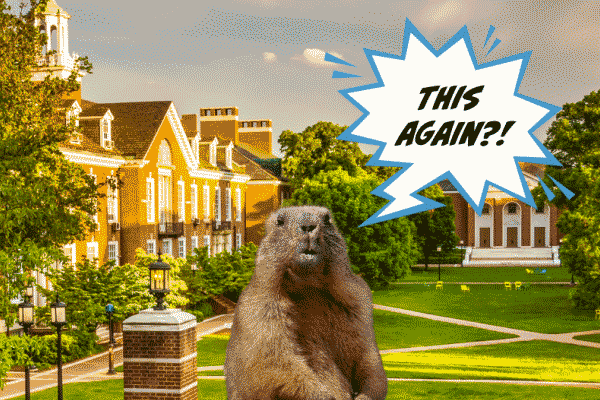February 2021 Speech Code of the Month: Johns Hopkins University

We’re proud to say our long-running Speech Code of the Month series — in which we highlight a policy that is particularly restrictive of students’ free speech rights — gets results, with about 50% of schools responding by revising the speech code in question. But some universities seem to be stuck in a time loop, like Bill Murray’s character in the movie “Groundhog Day,” holding onto those same, problematic policies.
Back in 2006, FIRE selected the “Principles for Ensuring Equity, Civility and Respect for All” policy at Johns Hopkins University as Speech Code of the Month, as it broadly states: “Rude, disrespectful behavior is unwelcome and will not be tolerated.” Fifteen years later, the policy, which appears in the set of expectations for student organizations on campus, is still on the books. We’re making it our Speech Code of the Month for February 2021, in the hopes of getting results this time around.
Subjectively rude or disrespectful behavior could include just about any expression an administrator doesn’t like, making this policy overbroad under First Amendment standards. As we wrote in 2006:
This policy virtually necessitates abuse, since it is so broad that it could never be enforced across the board, instead leaving students at the whim of the administration. No university could possibly have the resources to prosecute every instance of rudeness that takes place anywhere on its campus.
Johns Hopkins is a private university, so it isn’t bound by the First Amendment like public universities are, but it makes broad free speech promises that cannot be squared with a ban on rude or disrespectful behavior.
Indeed, the university’s “Academic Freedom” policy explains that, while all members of the university have “a critical role to play in cultivating a climate of intellectual diversity, dignity, and respect,” academic freedom “necessarily permits the expression of views that even the vast majority of the community may find misguided, ignorant, or offensive.”
So students at Johns Hopkins are left with this contradiction: You’re free to express views that even the majority of the community find offensive, but behavior that administrators find rude could land you in trouble.
Johns Hopkins should revise this policy to be clearly aspirational in tone, or to target the sort of conduct that denies other students educational opportunities and that isn’t constitutionally protected.
The University of Southern Mississippi provides a useful model for a policy that sets forth a set of aspirational guidelines for interactions on campus without infringing on students’ free speech. The policy, found in its residence life handbook, begins with the following discussion:
The Southern Miss Standard was developed to embody the values we hope residents possess. At the same time, the university is strongly committed to freedom of expression. Consequently, these principles do not constitute university policy and are not intended to interfere in any way with a resident’s personal freedoms. We hope, however, that residents will voluntarily endorse these common principles, thereby contributing to the traditions and scholarly heritage left by those who preceded them, and will thus leave Southern Miss a better place for those who follow. We encourage residents to demonstrate respect, integrity and compassion in every facet of their university lives, thus ensuring the success of each resident.
Thus, Southern Mississippi makes its institutional values clear and encourages students to demonstrate respect for others, while also making its commitment to freedom of expression clear and explicitly stating these values “do not constitute university policy.”
Johns Hopkins would do well to follow suit, rather than letting another 15 years go by with this restrictive policy on the books.
Published at Tue, 02 Feb 2021 14:47:27 +0000